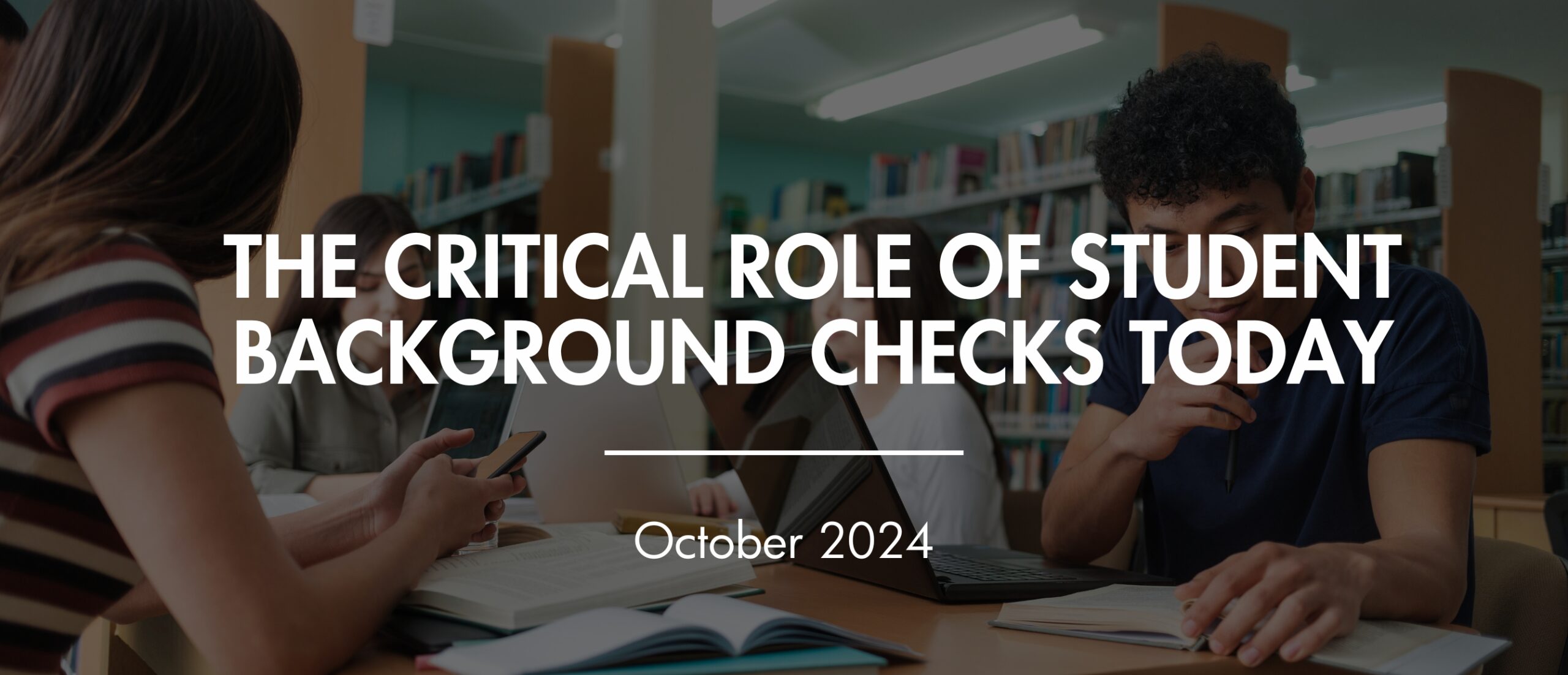Student background checks have become an increasingly important aspect of the admissions process at colleges and other adult educational institutions. These checks serve multiple purposes, from ensuring campus safety to preparing students for future career opportunities. As educational institutions strive to create safe and secure learning environments, the role of comprehensive background screening has gained prominence.
One of the primary reasons for conducting student background checks is to maintain campus safety. By screening applicants for criminal history, institutions can identify potential risks and make informed decisions about admissions. This is particularly crucial in light of past incidents where individuals with concerning backgrounds have caused harm on college campuses. Sadly, there have been far too many cases of campus shootings throughout the country during the past decades and before. Although background checks cannot guarantee protection, they can mitigate risk.
Beyond safety concerns, background checks can also help prepare students for their future careers. Many professions, particularly those in healthcare, education, and law enforcement, require background checks as part of the licensing or certification process. By conducting these checks early in a student’s academic journey, institutions can help identify potential barriers to future employment and provide guidance or support as needed. This proactive approach can save students time and resources by addressing any issues before they invest years in a program that may not lead to their desired career path.
It’s crucial for educational institutions to partner with reliable background screening companies that are also consumer reporting agencies (CRAs). These companies are bound by the Fair Credit Reporting Act (FCRA), which provides important protections for consumers, i.e., the student applicants, and ensures the accuracy and fairness of background check reports. CRAs have access to comprehensive databases and resources that allow them to conduct thorough and accurate background checks. They also stay up-to-date with changing regulations and best practices in the industry, which is essential given the complex legal landscape surrounding background checks.
Recent trends in student background checks include an increased focus on social media screening. As social media becomes an integral part of students’ lives, some institutions are considering these platforms as part of their background check process. However, this practice raises important privacy concerns and should be approached with caution. It is best to ensure that a CRA is performing the social media checks to ensure that protected classes are not discriminated against.
The importance of verifying an applicant’s exact legal name and date of birth against a valid government ID cannot be overstated. This is particularly essential since social security numbers are rarely part of a criminal public county record. This step is crucial for ensuring the accuracy of the background check results. Discrepancies in names or dates of birth can lead to incomplete or inaccurate reports, potentially missing important information or falsely flagging innocent individuals. For example, a simple typo in a date of birth could result in a clean record for someone with a serious criminal history, or conversely, could wrongly associate a clean record with a history of offenses.
In recent years, digital options have revolutionized the background check process, particularly in terms of providing required FCRA disclosures and obtaining authorizations. Online portals and electronic signature technologies allow institutions to easily and securely provide applicants with the necessary disclosures about the background check process. These digital tools also streamline the process of obtaining the required authorizations from applicants, ensuring compliance with FCRA regulations while improving efficiency. Plus, these digital options can be branded with the logo of the educational institution.
Digital solutions also offer benefits in terms of record-keeping and data security. Electronic records of disclosures and authorizations can be easily stored, retrieved, and audited, helping institutions maintain compliance with regulatory requirements. Moreover, secure online platforms can protect sensitive personal information more effectively than paper-based systems.
It’s important to note that while background checks are a valuable tool, they should be used judiciously and in compliance with all applicable laws and regulations. Institutions must have clear policies in place regarding how background check information is used in admissions decisions. These policies should be transparent and consistently applied to ensure fairness and avoid discrimination.
In conclusion, student background checks play a vital role in maintaining campus safety, preparing students for future careers, and ensuring the integrity of educational institutions. By partnering with reliable CRAs, verifying key personal information, and leveraging digital solutions, colleges and other adult educational institutions can implement effective and compliant background check processes. As the landscape of higher education continues to evolve, the importance of thorough and fair background checks will likely only increase, making it an essential consideration for institutions committed to providing safe and successful learning environments for all students.
Posted by: Rudy Troisi, L.P.I., President and CEO, Reliable Background Screening
Copyright © 2024, Reliable Background Screening, a Division of Marcett, Inc. All rights reserved.


